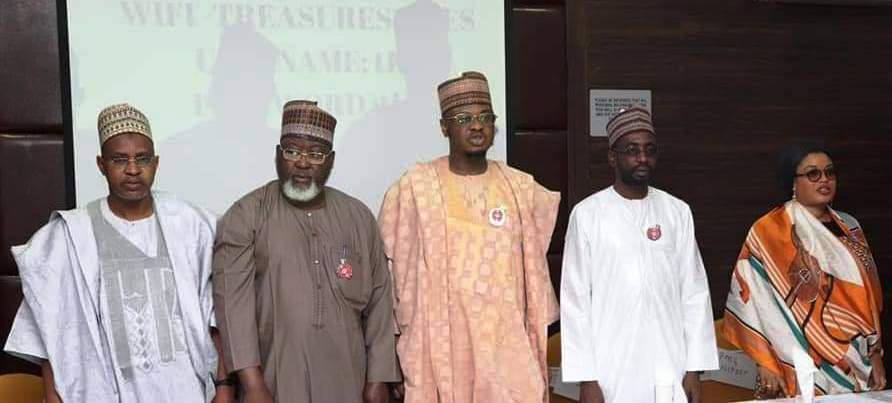Last week Friday in Abuja, the Minister of Communications and Digital Economy, Dr. Isa Ali Ibrahim (Pantami), met with the Abuja Chapter of the National Information Technology Reporter Association at a press briefing.
At the briefing, which was well attended by all agencies under the Ministry, the Minister among other policy comments, gave insights to the renaming of the Ministry to include Digital Economy and what Nigeria stands to gain from the name changed.
Here, ITPulse highlights some of the key points and take-homes from the press briefing.
- President Buhari to sign an Executive Order on CNI Protection
- The 2020-2025 Broadband Plan will be ready in Q1 2020
- Advocates the validation of certificates with skills
- Urges citizens to leverage emerging digital capacities to produce employers of labour
- The meeting is the first briefing by any Ministry, Department or Agency (MDA) of government in 2020.
- The re-designation was done to position Nigeria for the gains of the digital economy as ‘communications’ captured just the channels.
- The re-designation will help to mobilise other sectors and align with the Economic Recovery and Growth Plan (ERGP) of the Federal Government.
- The re-designation will help the Ministry captures its objective in keeping with the best global practices.
- Following the re-designation, the Minister stated that the Federal Government directed the Ministry to develop and implement a national digital economy strategy. This was done by the Ministry and unveiled by the President at the e-Nigeria Conference in November 2019.
- Pantami said the policy captures the thematic focus while the strategy speaks to how the various themes will be achieved.
- All MDAs are connected to the strategy in view of the centrality of ICT to development in other sectors of the economy. He emphasised that the role of the Ministry is to coordinate the implementation of the policy and the strategy.
- The Minister said by the end of the decade, the Federal Government expects every Nigerian to have connected with and expressed the goal of digital Nigeria by being computer literate, owning a digital device. Thus, having access to the Internet, owning a bank account that can be accessed and operated digitally and online.
- Online communications and transactions should focus on and encourage the digital economy and ensure taxes and prices come down because when prices come down, demand goes up” and entrepreneurs make more profit by the sheer increase in the volume of trade.
- Different sections of the Nigerian population are targeted for training and retraining, including women, youths, journalists, civil servants and those who are certificated but unemployed.
- At least, 90 percent of Nigerians will be digitally literate by the end of the decade as all agencies in the Ministry will be involved in a series of training and retraining as much as the financial circumstances of the nation permits.
- Nigeria will ensure the availability of robust data centers and deals with broadband expansion.
- The Federal Government and the Ministry are encouraging many institutions to host their data in Nigeria.
- Nigeria will facilitate digitisation of activities that will find deeper expression in e-health, e-agriculture and other automated transactions.
- Nigeria will focus on cybersecurity awareness to ensure the security of activities in cyberspace.
- Nigeria will key into and explore in quantifiable terms, cloud computing, nanotechnology, Fifth Generation (5G) communications, Artificial Intelligence (AI) and Robotics.
- The Minister said Nigeria will leverage the skill potential in the teaming youths so they can acquire enduring skills that will make them be potential employers rather than potential employees.
- The Minister looked forward very enthusiastically to seeing more Nigerians use the social media to support the digital economy by engaging it to achieve legitimate economic prosperity rather than for the promotion of division and hatred among the people of Nigeria.
- The Office of the National Security Adviser (ONSA) was vetting the content of the proposed Executive Order on Critical National Infrastructure (CNI) Protection, one of the key demands of the Nigerian Communications Commission (NCC) to ensure a halt to rampant vandalism of telecommunications infrastructure.
- The police authorities have been directed to locate key telecom facilities for surveillance.
- The Minister said he has written to all the governors in Nigeria on the need to comply with the National Economic Council (NEC) resolution on the Right of Way (RoW), disclosing that all the Governors had agreed to the harmonisation on the RoW charges and efforts are being made to ensure the policy is respected
- Since 25th September 2019, no Subscriber Identification Module (SIM) card has been used in Nigeria without being properly registered.



